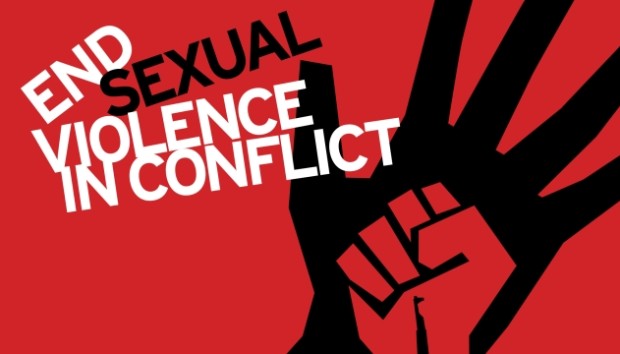Women, War, and the Worsening Situation
War, conflict and all kinds of armed battle have horrible impacts. Society is torn apart, often having to be rebuilt from the grassroots. People find themselves crushed by injury, their means of livelihood being thwarted by an exchange of fire and their lives itself, smashed to smithereens with them left to pick up the pieces. But of the lot, women are known to be the worst sufferers of conflict.

As report after report seems to underline the fact, the trend still continues in the same direction. World over, women are the greater part of the segments of society that flee from the scene of conflicts. With most of the menfolk taking to the armed forefronts, women find themselves being made the sole breadwinner of their families. Coupled with the economic considerations, there is always the looming threat of sexual violence. Oftentimes, the bodies of women become the battleground, as combatants and non-combatants exploit women sexually.
Why is sexual violence so common on every war front? Why are women the easiest targets? The fact is that rape is cheap, easy and extremely effective. Armed groups, combatants and non-combatants alike use rape as a means to terrorize and control women and communities. Subjecting women to sexual violence earns the woman the indelible mark of stigmatization that society throws on them. Shrouded in humiliation, families then wind up turning these women out of their homes, and when women have spurned the backbone of a societal structure is broken. Men don’t want to marry women subject to sexual violence. Families don’t want to have them around anymore- either the stigma is too much to bear or the fact that these women burden them since they can’t be married off (especially true in societies where marriages bring in bride prices). Sexual violence is calculated, brutal and absolutely bereft of humanity. Using sexual violence as a modus operandi in warfare is intricately woven with the hegemonic desire for power. Soldiers thirst to drive fear and strive to humiliate and punish women and their communities, in the hope that by doing so, they would invariably break down society entirely. Sexual violence in conflict and post-conflict situations is a preferred method that is used to reinforce gendered and political hierarchies.

Considering this, it is absolutely imperative that women be made an integral part of the process of preventing conflicts and part of the peace-building and peace-keeping roles. Although this would contribute heavily towards protecting women, the ground reality is that the inclusion of women in pre and post-conflict measures has been ignored largely. A UNSC Resolution (Res 1325 in 2000) worked to urge all the member states to “ensure increased representation of women at all decision-making levels in national, regional and international institutions and mechanisms for the prevention, management, and resolution of conflict”. Aside from reflecting the evident lack of the involvement of women in dealing with conflict, the resolution also showed signs of being a proactive initiation of the process. However, the situation a decade since shows no signs of improvement, or abatement. Consequently, a recent endeavor was made by the Security Council, with a host of deliberations that discussed the means that may be deployed to effectively implement Resolution 1325.
The frugal to non-implementation of the resolution boils down to the question of policy. The involvement of women in the process of peace-building and peace-keeping, as also in the active political trajectory of a state is largely up to the state itself, and its policies vis-a-vis women. In most parts of the world, women find themselves inadequately equipped and inadequately represented. Furthermore, in several post-conflict regions, women find themselves in a situation of fear, and in a situation where they are placed as sole breadwinners, and thinking of participating in the political process is far too distant a proposition. Where the fear factor goes, most women believe that participation in a vociferous political framework might bring them more harm. This is especially true in the context of the Democratic Republic of Congo. When women are forced to be sole breadwinners by circumstance, they are obligated to put their families first. This often makes them want to reach out to things that would benefit their families more than anything else. Consequently, these women wind up either voting for leaders who offer them sops and freebies but no future plans of empowerment or wind up staying outside the political framework in search of a means of livelihood that could provide for their families. This is particularly true in DR Congo and Zimbabwe, and to some extent in Nigeria.
Having said that, it is important to remember that the involvement of women alone will not suffice to solve the conflict and restore peace. The UN, however, needs to stabilize its policies. On the one hand, it cannot afford to silently allow war to burgeon- albeit through false claims of self-defense (Afghanistan, Iraq) and humanitarian intervention (Libya), while on the other hand try seeking women out to foment peace.
Involving women in the peace process is not easy, and is certainly not free of obstacles. A strong commitment is needed from the states themselves, to determinedly keep its women safe, and offer them a good social standing. On the part of the women, as hard as it might be, it is necessary that they put all their trust in themselves, to take a leap of faith.
About the Author:
 Kirthi Jayakumar is an activist, artist, entrepreneur, and writer from Chennai, India. She founded and runs the Red Elephant Foundation, a civilian peacebuilding initiative that works for gender equality through storytelling, advocacy, and digital interventions. She also founded and runs fynePRINT, a feminist e-publishing imprint. She is a member of the Youth Working Group for Gender Equality under the UNIANYD.
Kirthi Jayakumar is an activist, artist, entrepreneur, and writer from Chennai, India. She founded and runs the Red Elephant Foundation, a civilian peacebuilding initiative that works for gender equality through storytelling, advocacy, and digital interventions. She also founded and runs fynePRINT, a feminist e-publishing imprint. She is a member of the Youth Working Group for Gender Equality under the UNIANYD.
Kirthi is an author and released her debut novel in 2017, titled The Doodler of Dimashq. Her second book, The Dove’s Lament, made it to the final shortlist for the Muse India Young Writers’ Literary Award.
Kirthi coded an app for survivors of gender-based violence called Saahas, which works as a web and mobile app. She taught herself to code and created a web app, a mobile app, and a Facebook ChatBot to support survivors of gender-based violence across 196 countries, and to assist bystander intervention.
In 2016, Kirthi was invited to Michelle Obama’s United State of Women Summit at the White House in Washington DC, as a nominated changemaker. In 2017, she was one of the youth activists invited to attend President Obama’s Town Hall at New Delhi.
Kirthi has spoken at TEDx Chennai, addressing Peace Education as a means to end Bullying. She has also spoken at FICCI FLO, as one of the youngest speakers to address the members. She was also a speaker at the Economic Times Women’s Summit 2018. Kirthi has also had the distinction of addressing the UNV Partnerships Forum on her work as an epoch-making online volunteer with the United Nations.
Kirthi is the recipient of the US Presidential Services Medal (2012) for her services as a volunteer to Delta Women NGO, from President Barack Obama. She is the two-time recipient of the UN Online Volunteer of the Year Award (2012, 2013). She received the 2016 Orange Flower Award from Women’s Web, the 2016 World Pulse Impact Leader Award and the 2017 Empowerment Leader Award from the Dais Foundation. Her work has been published in The Guardian and the TIME Magazine. She was recognized by EuropeAid on the “200 Women in the World of Development Wall of Fame in 2016.” She received the Digital Women Award for Social Impact in 2017, from SheThePeople, the Person of the Year (Social Entrepreneur) 2017 from The Brew Magazine. Kirthi is a recipient of the Yuva Samman from MOP Vaishnav College, in January 2018. The Red Elephant Foundation received the FICCI FLO Outstanding NGO of the Year Award 2018, and the UN Online Volunteering Award 2017. Kirthi was also among the six women featured on Facebook India on International Women’s Day in 2018.




Leave a Reply